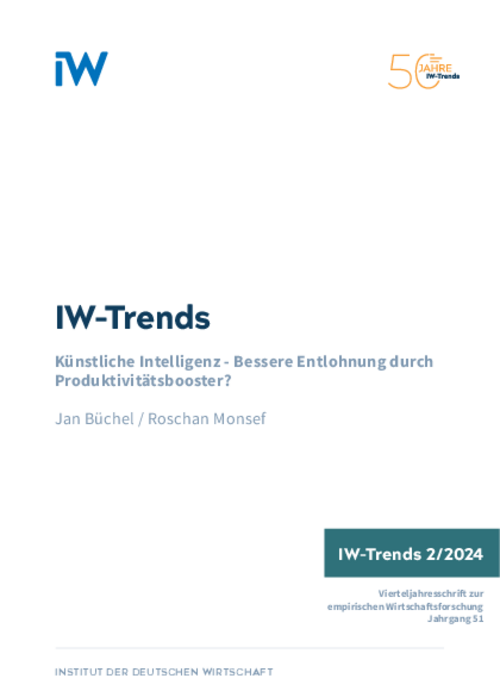Digitization is penetrating all areas of life and networking people, machines and processes. This is creating immense opportunities for the German economy.
Digitization

About the topic
In Germany, it has triggered a profound structural change in all areas of the economy and society. This digital transformation holds enormous opportunities, and they must be exploited - including, but not limited to, the automation and networking of value creation processes under the buzzword Industry 4.0. Autonomization in particular, i.e. enabling machines to organize, repair and optimize themselves, opens up extensive opportunities.
The prerequisites for digital transformation are nationwide high-speed networks and an unbureaucratic and capital-rich innovation environment. Employees also face challenges: Companies must identify the new requirements for employee qualifications and train employees accordingly. In addition, companies, especially from the SME sector, must drive digitization more strongly in their own operations, for example by refining their business models and developing new ones, for example in cooperation with startups. On this page you will find various topics and current studies from the field of digitization.


Data Utilisation and Data Sharing: The Potential and the Reality in German Companies
Companies that store their data extensively in digital form, process it in a structured manner and use it in a variety of ways can become particularly efficient members of the data economy.
IW
Intellectual property and fourth industrial revolution technologies: how the patent system is shaping the future in the data-driven economy
Using the classification system from the European Patent Office (EPO), we identify almost 600,000 patent applications for fourth industrial revolution technologies from 1986 to 2015.
IW
The Law and Economics of the Data Economy: Introduction to the Special Issue
This article intends to provide a framework to better understand the economic problems and legal challenges resulting from the transition of the European economy to a data economy.
IW
Special Issue: The Law and Economics of the Data Economy
This special issue on “The Law and Economics of the Data Economy” for the “European Journal of Law and Economics” collects 8 contributions from 15 authors of 7 countries (Belgium, Hungary, Italy, France, Germany, Switzerland and USA).
IW





